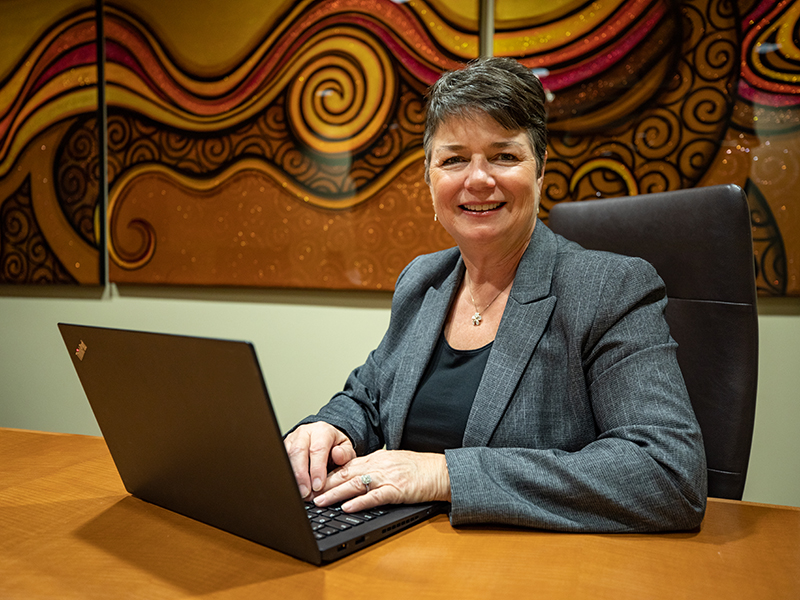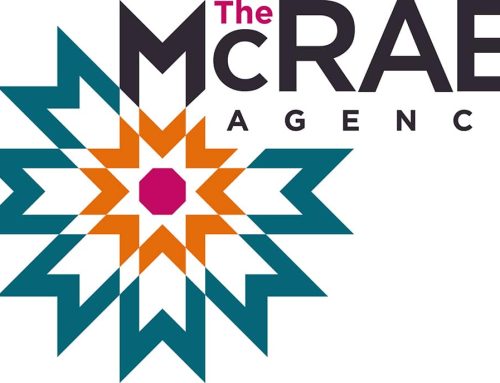By Jennifer Marshall McIlquham
Battling through a divorce, adjusting to widowhood and finding solid ground when facing major job changes are among some of the most challenging tests women can face. While all three situations involve a myriad of different and often conflicting feelings, these tumultuous emotions can negatively impact how women make decisions, and even the best decision makers can struggle to find and make the right choices.
Renee A. Hanson, a Private Wealth Advisor with Affinity Wealth Advisory Group in Scottsdale, has the expertise to navigate women through their changing financial circumstances to arrive successfully at the place they want to be in their new life.
“While I work with all individuals, I specialize in helping women in transition,” said Hanson. “Women in transition are those who are moving through divorce, coping with widowhood or experiencing a job change.”
Given that all three conditions can leave women emotionally scarred, seeking the help of a licensed and professional counselor can help to alleviate and heal their raw emotions. But emotional healing doesn’t happen overnight; it only begins when women are able to own their situation. Once empowered with this renewed self-confidence, they will be in a healthier place to make well-informed decisions that will positively impact their life going forward.
Many decisions women make during this time of incredible change are irreversible and will have financial repercussions on their future. Knowledge is power, and to fully comprehend how the decisions they are making today can benefit or hurt them in the years ahead, they need to seek the help of a licensed financial planner.
When a divorcing couple doesn’t have children, the woman only has herself, her financial needs and her life to consider in the settlement process. However, when children are involved, the situation is made infinitely more complicated. Children are already dealing with a whole array of their own divorce related emotions, and the last thing a mother wants is for her kids to feel at fault in any way or be further hurt or scarred in the process.
“Women generally balance family needs in a way that often times leaves them sacrificing themselves or hurting themselves at their own expense,” said Hanson.
But it doesn’t have to be this way, and that’s why a mother needs realistic financial guidance to help protect her and her children’s interests. With careful planning, a woman can meet her own needs without sacrificing what’s best for her kids.
Who will retain ownership of the family home is paramount in many divorces. Hanson reports that most women want to retain the home hoping that if her kids can keep their same bedrooms, schools and friends, their lives will feel less disrupted and more stable during the divorce process.
To highlight that this isn’t always the wisest overall financial decision for the future of the family, Hanson draws an example comparison between the amount of equity in the house versus that in the husband’s 401k.
Even if the house and his 401k have the same dollar value, they still may not represent an equitable division of assets if the wife keeps the house and the husband keeps the 401k.
“The house equity will not continue to generate a level of income where the 401k will,” said Hanson. “The information women gain when working with a financial advisor to understand the financial consequences of their decisions empowers them to make better decisions.”
After reaching an equitable division of the former family home and the 401k, a solution might see the mother purchasing a new place for her and her children in the same neighborhood thereby allowing her kids to continue attending their same schools and maintaining their same friendships.
“My ultimate goal in working with women in transition is that they journey through this transition period with the least amount of emotional baggage,” said Hanson. “I want women to make the right decisions so that they don’t look back and wish they had done something different.”
Widowhood encompasses its own unique package of emotions and financial scenarios. According to Hanson, most newly widowed women rely on their adult children. However, women are resilient, and within a year or so, they usually find their footing, and they no longer require the intense support they had originally needed. Hanson encourages her clients to balance this situation with love and care ensuring their children know that their help was appreciated, and while they don’t require day-to-day financial and life management, they will always need and love their children in the same way children always love and need their parents.
“Since children can sometimes feel discarded,” said Hanson, “women shouldn’t ignore their help, but instead, manage it so they feel supported and not dependent.”
The key is to keep the relationship balanced so mother and children always feel like they’re supporting and helping each other in a healthy respect.
When it comes to women changing jobs, moving up in their positions and/or embarking upon new career opportunities, Hanson sees them not being as respectfully aggressive as their male counterparts.
“Women generally don’t negotiate starting salaries and benefits to the same degree men do,” said Hanson, “nor do they negotiate during annual reviews.”
However, she firmly believes that women can be excellent negotiators. In fact, in the same way women naturally nurture, protect and care for others, they’ll negotiate for others but not for themselves.
Furthermore, Hanson believes that women often see the world as operating on “a sense of fairness” meaning they believe they’re being compensated fairly when maybe they’re not getting all that they’re entitled to receive. Therefore, Hanson tutors her clients in how to position themselves for honest and respectful negotiations by understanding the job inside and outside and doing appropriate due diligence to discover if there are hidden benefits like working from home or accumulating additional vacation days.
“I really help my clients understand where they are,” said Hanson, “so that they can paint the picture of where they want to go, and I can create a plan for them to arrive there successfully.”
Hanson is a Certified Financial Planner and Barron’s Top 1,200 Financial Advisor. She provides comprehensive financial planning in the following key areas: calculating cash flow and net worth, addressing immediate financial needs and determining risk exposure for things that go bump in the night like disability. Hanson also helps her clients with: integrating employer benefits into a financial plan, helping minimize taxes now and in the future, calculating the savings rate and the expected longevity of assets and working with clients on estate planning with their attorney.
Transition is challenging enough; don’t tackle it alone. Get the financial knowledge you need to make your best decisions for your best future.
“Women don’t often seek advice,” said Hanson, “so I put out the branch, so they can accept the invitation.”
Call Renee A. Hanson at: 602-923-9800 to schedule your complimentary consultation today in her Scottsdale office at: 7010 East Chauncey Lane, Suite 200, and check out her website at: www.ameripriseadvisors.com/team/affinity-wealth-advisory-group/.





